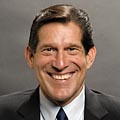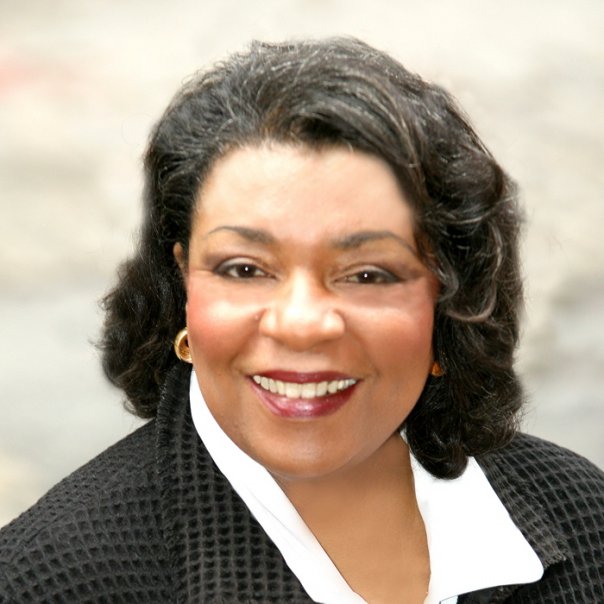In the Landmark Forum people have breakthroughs, powerful insights and genuine epiphanies: People use these breakthroughs and epiphanies to make powerful changes in the way they live their lives and to pursue their long held dreams. David Cunningham was recently asked to be an expert on the subject of epiphanies in an article published in the Cape Cod Times.
A Moment of Epiphany
How does a destructive alcoholic stop drinking?
How does a child decide approval by her critical parents isn’t required?
How does a soldier decide a war is wrong?
One answer can be an epiphany — a sudden insight into the essential. Such an insight can transform the mundane into the miraculous, a problem into a possibility.
For three Cape Codders we interviewed, an epiphany came out of pain. For others, it can come in the midst of the commonplace. But regardless of the origin, an epiphany can alter a view of reality and send life in a different direction.
The pain for Joe Navas of Eastham was both physical and psychological.
He was depressed and had been drinking in reaction to his father’s death when Navas was just a young man. “From the age of 26 to 29,” Navas says, “I was a hard-core alcoholic. Early one morning in August 1999, after a night of drinking, I woke coughing up blood. There were neon-colored things coming out of me.
I diagnosed myself in liver failure.”
Ellen Anthony of Truro felt psychological pain.
Her parents were well-known in the theater world. Her mother was an actress who had toured with Ethel Barrymore; her father was an acclaimed Broadway director.
In March 1990, Anthony had been asked to direct “The Lark” for the Academy of Performing Arts in Orleans.
“Your father directed it on Broadway,” she was told. “How about you try to direct it here?”
Two weeks before opening night, the star playing Joan of Arc couldn’t continue. So Anthony memorized the 96-page script and, though she was 43 years old, played the 16-year-old Joan to rave reviews.
But her parents felt compelled to offer their own professional critique, including her father’s pronouncement that her acted outrage and terror weren’t extreme enough.
“I felt completely impaled,” Anthony says. “For a moment I had forgotten that, according to my parents, I really was no good.”
For Cole Morton, emotional pain came when what he’d based a large part of his life on suddenly seemed to have no meaning.
He’d been brought up to be “real patriotic” in the 1940s and ’50s, so he signed up to serve in Vietnam. He learned Vietnamese and saw bloody action while in the Marines in 1967-68. He saw many of his men killed or badly wounded; he gave the orders to fire, causing “catastrophic death and destruction to enemy soldiers and innocent civilians.”
In January 1968, he gathered a group of Vietnamese children and fed them Christmas cookies from his wife while they all sang songs. He suggested they sing “Ngay Nan Mem Oy,” about boys and girls enjoying freedom and democracy, and none of the children knew the song. “There was a flash in my mind that said, ‘What are we doing here?’ All of a sudden, I felt I was being personally violated. I’d come to Vietnam believing I was doing my patriotic duty, bringing freedom and democracy to Vietnam. At that moment, I realized I’d been lied to by my own government.”
Stages of change
Looking back at these painful moments, however, Navas, Anthony and Morton see their anguish in a new light: They now see that what had been so painful led them to an awakening.
An epiphany.
“Epiphanies seem to happen in an instant,” says David Cunningham, a senior Program Leader at Landmark Education, a San Francisco-based international training and development company that offers programs focusing on success and fulfillment. “Actually, there are three stages. First, the person sees into what was previously a blind spot. It is not something that wasn’t there, but something they could not see before. For example, if you were walking in the woods and someone said, ‘There’s a bird,’ and all of a sudden, you see it. Second, they realize that the particular view of life that they had wasn’t real, but was a view, and finally, in a critical step, once they get a new view, they see they have a power they didn’t have before.”
The source of epiphanies, Cunningham says, “is a conversation with other people or with yourself. Suddenly there is an alternative conversation; you see different things.”
Navas’ epiphany led him to realize that he didn’t want to die.
“More than wanting to live for myself, I knew that my mom, who had lost so many people in her family already, would not want to live without me,” he says. “I didn’t want to die. It would be like murdering my mother.”
He tried to get into a rehabilitation program, but there was no room, so he gained sobriety on his own. “I had friends around me, and for the next six months, it was frightening.”
Navas has been sober for eight years and has become a runner, winning or achieving respectable times in more than 70 races around Cape Cod, Boston and Colorado.
“My life has been getting better and better and I hope my story can act as a catalyst for someone else,” he says. “There is always room for change.”
Their own powers
At Ellen Anthony’s dark moment backstage, she was lucky to have a friend who overheard her parent’s assessment. The friend took her aside and said, “Jeez, give me a break. Who do they think they’re talking to?”
That, for Anthony, led to the epiphany. “I suddenly realized,” she says, “it was not an option to please these people. I’d been Phi Beta at Vassar, first French horn in the Hudson Valley Symphony and I’d never pleased them. I’d always felt like someone else was running me.
“The gift of this event was bigger than I ever could have predicted. Finally I was free and never hoped for their approval again. I got it: Follow your inner authority.”
Today Anthony describes herself as a “deeply contented puppeteer and life coach.”
Morton’s epiphany that Americans were not going to bring democracy to Vietnam, and most locals didn’t know why the war was happening, led to huge changes in his life. After he got home, his shock at his participation in the war scared his wife and himself; they divorced. He’s now a published author and member of Veterans for Peace, speaking out to students and other young people.
He, and the others, discovered their own powers.
“The power of the past,” says Cunningham, “is what we have decided about it. What impacts us today are the conclusions we have drawn about those events. Although we cannot change the events of the past, the good news is that we can change what we decided about the past. We can pull our decisions about the past into the light of day and then the cascade that leads to epiphanies can start.”
Important things
to tell your children
Parental support and guidance can help children to not get locked into one view of themselves or a situation, but realize that change can happen and life can be different:
“It’s not over until it’s over. It’s a chapter, not the whole book. Consider Harry Potter books; there were seven of them. You have the whole rest of the series to go. This isn’t the end of the story.”
– Erik Wikstrom, minister, First Parish Brewster Unitarian Universalist Church
“Parents who give the message that you are not good enough and never will be any good discourage change in their children. Change comes from a combination of parents who have confidence in their kids but who also hold them accountable.”
– Ellen Nickerson, consultant and therapist for Child and Family Services of Cape Cod
“Try not to make your children change based on what you want them to become. Instead, have faith that there is something good inside of them.”
– Joe Navas of Eastham
“”If your child comes home from school saying he was teased, and you see the child’s response was not productive, you can say, ‘That’s one way to see it. What are other ways to see it?
How do you suppose Grandma would see, or the other boy in the argument, or a character from TV?’ That lets the child see that his view is not the one; he gets power right there if he sees that the view that he had was a view and not the truth.
“You can say to the child not what you did was wrong, but what you did didn’t work. There is a big difference. One leaves the child in a judgment about himself; the other leaves a child knowing what is possible.”
– David Cunningham, senior program leader, Landmark Forum in San Francisco
Change in perspective
Sudden insights can come in a moment of pain, but they also can arise in the most routine of occasions. What happens is that a person sees something that was not evident a moment before.
Erik Wikstrom, minister at the First Parish Brewster Unitarian Universalist Church, recalls a church member lighting the candles one Sunday morning. Suddenly, the parishioner said, “It just dawned on me that I have an entire life to live my life.”
This man, says Wikstrom, “was in his late 50s and had had a sense that he should be living in a clearer way. He thought he was a failure because he did not know all the answers to life’s questions. He’d been hampered by a sense of panic.” But after that insight, he became less driven.
David Ziemba, dean of Learning Support Services at Cape Cod Community College for 20 years, has seen many transformations in his students, including one 20-something psychology major who attended a yoga class.
“When the class was over, she’d decided to become a yoga teacher,” Ziemba says. “That class had triggered a spiritual reaction; she saw potential in her life.
“She thought about herself differently and saw something else was possible. This young lady would have been a good psychologist, but after this class she said to herself, ‘Hey, there’s another whole world.'”




3 comments
[…] Here are links to go back to part one and part two of this interview with David Cunningham about families. Also, read David Cunningham’s earlier interview about epiphanies. […]
[…] We have also have interviews of and articles by Landmark Forum leaders speaking out on a host of other subjects, such as Joe Dimaggio on parent/child relationships, Randy McNamara writing about resistance to change in organizations, David Cunningham speaking about dealing with family around the holidays, Nancy Zapolski talking about "in order to’s" and David Cunningham also commenting on the phenomenon of epiphanies. […]
Cole Morton – I, too, am a Vietnam combat veteran and Landmark person. I am also a member of VFP and would appreciate a phone conversation with you. My number is 616.566.7854. Thanks.